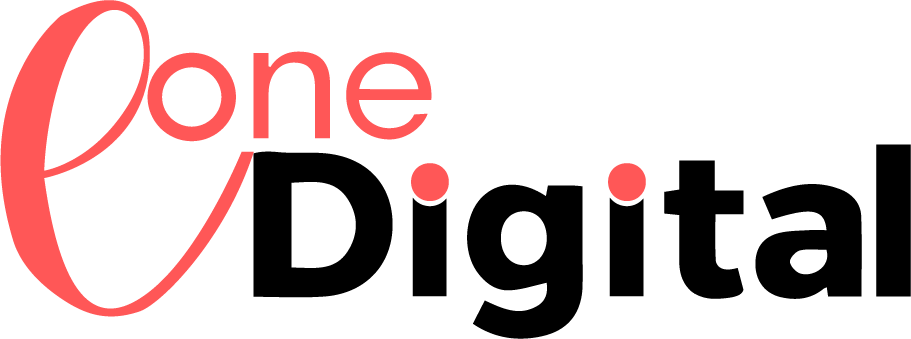Research suggests that more than 5.16 billion people will be using the Internet globally as of 2024. Digital advertising spending is projected to reach $786.2 billion by 2026. Rapid growth in e-commerce and online engagement has made digital marketing an indispensable part of business strategy.
Consumers in the USA and UK often use digital channels for information and purchasing decisions. According to a report published by HubSpot, 64% of marketers already use AI tools, and many more are considering implementing them as they acknowledge the benefits of better targeting and efficiency. In the following pages, we analyze the histories of past developments, current trends, and future predictions in the evolution of digital marketing that businesses must consider if they want to stay ahead.
The History of Digital Marketing
Digital marketing has come a long way since it started in the early 1990s. Here are its key stages:
Early Years (1990s—Early 2000s): With the introduction of the Internet came email marketing and the creation of a website. Companies have begun realizing that online advertising is possible.
Search Engine Optimization Appearance (Mid-2000s): With the rise of search engines such as Google, firms began to optimize their web presence to increase their visibility on the web.
Social Media Revolution (Late 2000s—Early 2010s): Facebook and Twitter changed the context in which brands dealt with consumers. Thus, social media marketing became an imperative engagement strategy.
Mobile Marketing Boom (2010s): The rise of smartphones made mobile marketing hugely popular. Websites were optimized for mobile users, and apps meant direct contact through direct engagement.
Data-Driven Marketing (2015-Present): Data analytics has evolved as a focus area for marketers, who work directly from data analysis in crafting targeted campaigns based on consumer behaviors and preferences.
AI Integration (2020 – Present): Artificial intelligence has marked a new era in digital marketing, making it possible to automate, predict, and personalize.
Comparison Chart: The Evolution of Digital Marketing
| Era | Key Developments | Focus Areas |
| Early Days | Email marketing; basic websites | Online presence |
| SEO Emergence | Search engine optimization | Visibility in search results |
| Social Media Revolution | Rise of platforms like Facebook | Engagement and community building |
| Mobile Marketing Surge | Mobile optimization; app development | Accessibility |
| Data-Driven Marketing | Analytics; targeted campaigns | Consumer behavior insights |
| AI Integration | Automation; predictive analytics | Personalization |
Digital Marketing Trends
As we usher in 2024, the following are the most pressing trends that will dramatically change the digital marketing landscape:
Artificial Intelligence
AI is fast transforming digital marketing as an automated business approach and has also brought consumer behavior insights. According to HubSpot’s report, 64% of marketers already use AI tools, and an even greater percentage expect to use them as more companies experience AI’s real potential.
Short-Form Video Content
Short-form videos have become one of the most effective content formats in digital marketing. As TikTok and Instagram Reels are gaining popularity, marketers invest heavily in video content that grabs attention quickly. 26% of marketers intend to dedicate more of their budget to short-form videos than any other format in 2024.
Hyper-Personalization
Hyper-personalization is a standard in digital marketing as consumers expect tailored experiences. Brands can leverage first-party data and advanced analytics to create highly individualized messages that resonate with their audiences.
Growth of Influencer Marketing
Influencer marketing thrives as brands leverage the trusted voices within niche communities to promote their products or services. In 2023, an incredible 86% of marketers reported that influencer marketing was effective for their company.
Privacy-Focused Marketing
Amidst data privacy concerns and regulations such as GDPR entering into effect, privacy-focused marketing is being sought by marketers who are transparent about data collection while not sacrificing personalized experiences.
User-Generated Content (UGC)
UGC gains importance due to consumer expectations from brands regarding authenticity experiences. Hence, when real users create content, be it reviews, testimonials, or social media posts, it bolsters credibility and fosters a community feel.
Conversational Marketing
Conversational marketing uses chatbots and messaging apps to engage customers in real-time dialogue. This gives customers an experience by answering what they ask.
Digital Marketing Future Predictions
2025 and beyond: Several predictions have been made regarding what will happen in the future of digital marketing:
More Concentration on First-Party Data
With major browsers phasing out third-party cookies, businesses will have to rely more on first-party data collected directly from consumers through interactions on their websites or applications.
Incorporating Augmented Reality
AR technology is poised to revolutionize the online shopping experience by enabling consumers to visualize a product in real-world settings before making a purchase decision.
Expansion of Social Commerce
The social media space will continue evolving into e-commerce hubs where consumers can discover and buy seamlessly through their feeds.
Full-Funnel Strategies
Marketers will increasingly engage in full-funnel strategies that address every stage of the consumer journey, from awareness to consideration to conversion, across multiple touchpoints to ensure full measurement.
Enhanced Data Analytics
As technology advances, marketers will leverage sophisticated analytics tools powered by AI to gain deeper insights into consumer behavior and refine their targeting strategies accordingly.
Conclusion
The landscape of digital marketing depicts a constantly changing environment with swift technological developments and shifting consumer expectations. Businesses have to adjust their strategies as they move further into 2024 and beyond to embrace these emerging trends or explore challenges such as data privacy concerns and market saturation.
By embracing innovations such as AI-driven analytics, hyper-personalization, short-form video content, and user-generated content strategies, companies can enhance their engagement with consumers while driving growth.
Partnering with experts is crucial for companies looking to navigate this complex landscape successfully. eOne Digital specializes in delivering tailored digital marketing solutions designed to meet your unique business needs. By leveraging cutting-edge strategies that capitalize on current trends and predictions, eOne Digital can help your brand thrive in an increasingly competitive environment!

